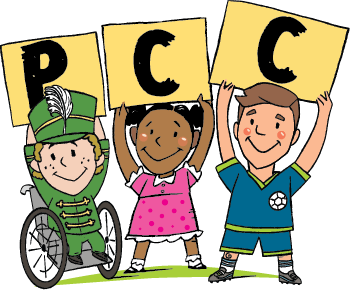“Will you play with me?”
It’s probably a sentence you hear from your child’s mouth daily, and there’s a good reason for it. The American Academy of Pediatrics says that play shapes the physical, cognitive, emotional, and social growth of children, and it’s essential for their well-being. It’s one of the most important ways that they can learn life skills and explore their surroundings.
Here’s what you should know about the role of play in your child’s development and how you can enhance this medium in their life.
What Are the Types of Play?
1. Physical
Physical play engages your child’s body. It requires them to move and develop both fine and gross motor skills. Gross motor skills involve the muscles required for large movements like crawling, walking, jumping, and running. Fine motor skills are movements we make with fingers and toes such as reaching, touching, grasping, releasing, pushing, pulling, shaking, tapping, twisting, and squeezing. Your child needs fine motor skills to zip a zipper and tie their shoes.
You can encourage physical play by:
- Visiting a playground
- Going to the park
- Using community spaces like baseball fields or basketball courts
- Teach them physical games like tag or hopscotch
2. Cognitive
Cognitive play are activities that engross your child’s mind and thereby enhance their memory, attention, and decision-making abilities. This is often a quieter form of play that helps to formulate their problem-solving and creative thinking skills.
You can engage your child in cognitive play with:
- Counting games
- Puzzles
- Memory games
- Reading
- Building blocks
3. Social
Social play is the form of play your child is seeking when they ask you to play with them. It involves interactions with another person (either a peer or an adult). Through social play, children develop the ability to communicate and work as a team. Social play is essential as it helps children learn how to navigate social norms and relationships, which is a life skill.
You can foster social play through:
- Play pretend
- Play dates
- Charades
4. Emotional
This final type of play helps children learn how to express and understand their emotions. By supporting emotional play, you help your child build empathy, self-awareness, and emotional regulation skills.
You can nurture emotional play by encouraging:
- Imaginative play
- Art
- Storytelling
Play Through the Ages
Follow this guide to understand how you can initiate age-appropriate play regardless of your child’s age:
Birth to 6 months
- Imitate your baby’s coos and babbles to have a conversation
- Show your baby bright and colorful objects
- Place your baby in different positions (such as on their stomach for tummy time)
7 to 12 months old
- Use a mirror
- Play peek-a-boo
- Expose your baby to different sensory experiences (ex: grass, bubbles, water)
1 to 3 years old
- Give your child empty containers, blocks, shape sorters, puzzles, etc. to play with
- Read to your child regularly
- Sing songs and play rhythms
4 to 6 years old
- Tell your child stories
- Schedule play dates
- Provide opportunities for singing, dancing, running, etc.
- Read to your child
- Provide dress-up clothes and props
What Are the Advantages of Play in Childhood Development?
Is play more important than teaching your child the ABCs? Wouldn’t they be better served going into kindergarten knowing all their shapes and colors rather than having unstructured playtime for most of their days?
Believe it or not, a play-focused approach to learning is equally effective as traditional teacher-led methods when it comes to literacy, thinking skills, and numeracy. Allowing your child to explore at their own pace and learn through play won’t set them back in life — it can only enhance it.
Here are some specific benefits of play in childhood development.
- Maintaining physical health
Children who engage in physical play improve their cardiovascular health, build strong muscles, and maintain a healthy weight. When you engage in regular physical play, you reduce the risk of obesity or other health-related problems.
- Boosting cognitive development
Through play, children explore their world and learn new concepts. They practice decision-making and learn the consequences of their actions. Depending on the activity, they may be required to exercise their memory, patience, attention span, or another challenging skill for their age.
- Enhancing social skills
Children collaborate and relate through play. They learn how to communicate with one another and resolve conflicts at an early age. Those who do not engage in social play have a more difficult time fostering empathy and understanding the emotions of others.
- Fostering emotional well-being
Children also learn a lot about their emotional state through play. It provides them a way to process their feelings, cope with disappointment and challenges, and thereby build resilience.
Unstructured vs. Structured Play
You may be drawn to structured play for your child — organized sports or art lessons — where they’ll be directed or guided. There are benefits to these programs. They have curriculums and learning outcomes. However, it’s equally important to allow your child unstructured playtime.
During unstructured play, also called independent play, your child can explore their interests, use their imagination, and make their own choices. Overdirecting children can reduce their confidence and self-esteem. Ultimately, you want them to feel independent and capable of problem-solving as they grow.
The Role of Parents and Caregivers in Play
Your role as a parent or caregiver should be to support and encourage play in your child’s life. Here are a couple of ways you can do so:
- Provide a safe environment (both inside and outside), so children have access to spaces intended for play. Remember, play spaces will get messy and that’s okay! Your child needs space and freedom for creativity.
- Offer a variety of toys, games, and activities that cater to different types of play. For example, provide a collection of clothes and masks for your child to use. Dress-up is a classic form of play, and you don’t need elaborate costumes for this to be effective. You could even make masks with your child as an activity before using them during imaginative play.
- Encourage imaginative play where your child uses their creativity. For example, do you notice that your child is using their imagination to turn everyday items into other objects? Like using a banana as a phone? Talk to them about what they’re doing and thinking as they play.
- Limit your child’s screen time, so they are more likely to engage in active play.
- Participate in play when requested and be patient with your child. Follow their lead and do not force them to play one way or another. This will help strengthen the parent-child bond.
- Make time for unstructured, independent play. Although you should participate when your child requests, you can also set appropriate boundaries to encourage independent play. Independent play ensures that your child’s play does not become adult-led or reliant on outside input.
- Think outside the box. Play can happen while you’re performing household tasks. For instance, if you’re cooking dinner, you can have your child role-play the tasks that you’re engaging in alongside you with their cooking toys.
- Inspire play through the activities you’re doing. Take your child to a children’s theater, so they can understand role-playing, pretend, collaboration, and creativity from a different perspective. On the way home, talk about what your child liked or didn’t like about the performance. Reflect on different play-related activities you can draw from that experience and implement them.
Final Thoughts
Do you have a question about how play is affecting your child’s development? Ask your pediatric care team! Jacksonville Pediatric Care Centers provide care. Dr. Benitez and his team of Jacksonville pediatricians work around the clock to provide exceptional pediatric care.










